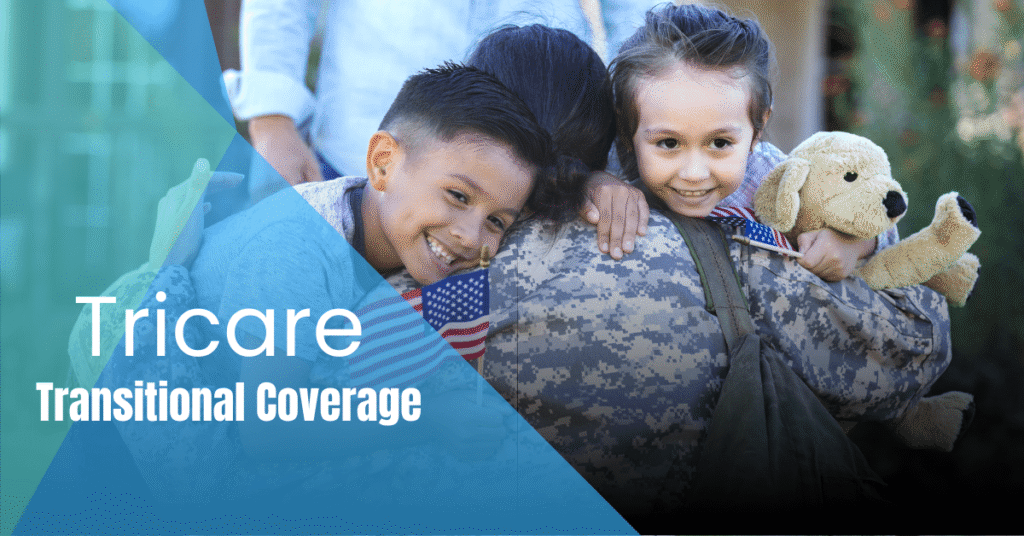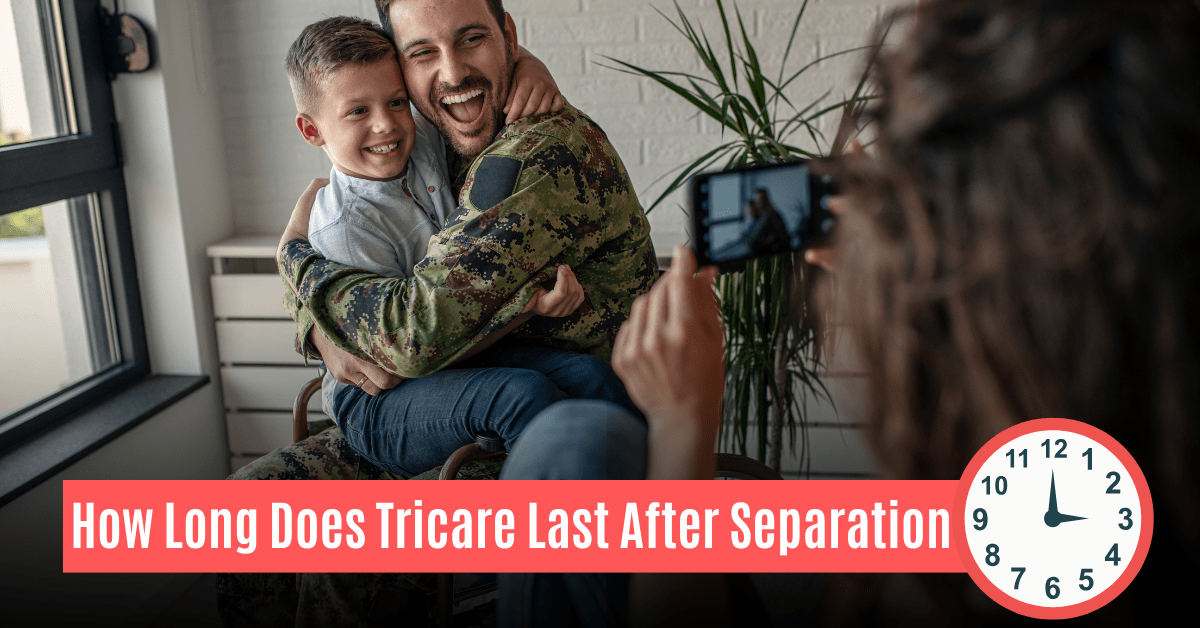Tricare lasts for 180 days after separation from the military. Tricare coverage continues for 180 days post-separation from the military, ensuring that service members and their families have access to healthcare during this transition period.
Tricare, a comprehensive health insurance program provided by the Department of Defense, offers various plans that offer coverage for medical, dental, and prescription needs. These plans include Tricare Prime, Tricare Select, and Tricare Reserve Select, each with its own set of benefits and requirements.
Understanding the duration of Tricare coverage after separation is crucial for service members and their families to ensure a smooth healthcare transition as they embark on their new civilian lives.
Understanding Tricare Benefits After Separation
Tricare is a healthcare program for military personnel and their families. After separation from the military, your Tricare coverage will continue for a certain period of time, depending on your circumstances.
| Type of Tricare Plan | Coverage Duration after Separation |
|---|---|
| Tricare Prime | 180 days |
| Tricare Select | Transition Assistance Management Program (TAMP) period, usually 180 days, but can vary based on factors such as deployments or disability ratings |
| Tricare for Life | Indefinitely for retirees enrolled at the time of separation |
| Tricare Reserve Select | Until the end of the separation month plus 90 additional days |
- Active duty service members who have served for at least 20 years and become eligible for retirement.
- Retirees who are not eligible for Tricare for Life.
- Family members of qualified sponsors can extend their Tricare coverage by enrolling in the Continued Health Care Benefit Program.
If you have any additional questions regarding your Tricare benefits after separation, it is recommended to contact Tricare directly for the most accurate and up-to-date information.
Tricare Transitional Coverage
Tricare Transitional Coverage provides medical benefits for a limited period after separating from the military. The duration of Tricare coverage after separation varies depending on the circumstances, such as retiring versus separating due to other reasons.
Tricare offers transitional coverage to ensure a seamless healthcare transition for service members and their families after separation. This coverage is provided through the Transitional Assistance Management Program (TAMP). TAMP provides a bridge between military and civilian healthcare coverage, offering a safety net during the transition period.

Duration and benefits of TAMP: TAMP coverage typically lasts for 180 days after separation from active duty service. During this period, eligible individuals have access to the same healthcare options as active duty members and their families. This includes healthcare services such as doctor visits, prescriptions, and hospitalizations.
Qualifying for TAMP: To qualify for TAMP, individuals must have served on active duty for at least 30 consecutive days immediately before separation. This includes members separating due to retirement, separation from the military, or transition to the Selected Reserve. Additionally, individuals must be eligible for Tricare and not have other healthcare coverage.
Continued Health Coverage Options
Tricare coverage after separation may vary depending on the specific situation. However, there is an option to extend coverage through the Tricare Continued Health Care Benefit Program (CHCBP). This program provides temporary health coverage for transitioning service members and their families. It offers similar benefits to regular Tricare coverage, including access to a network of providers and prescription drug coverage.
It is important to note that the CHCBP has certain limitations and features. The program lasts for up to 36 months and is available to individuals who have qualified for regular Tricare benefits within the past 60 days. While it provides comprehensive coverage, it also requires monthly premiums.
To apply for CHCBP, eligible individuals must fill out an application and provide supporting documentation. The application can be submitted online or by mail. It is vital to apply for CHCBP within the specified timeframe to ensure continuous coverage after separation. Overall, the Tricare Continued Health Care Benefit Program offers a valuable option for individuals seeking continued health coverage after separation from military service.
Additional Healthcare Options For Veterans
Tricare, the healthcare program for members of the military and their families, typically lasts after separation for a certain period of time. However, veterans also have additional healthcare options available through the Department of Veterans Affairs (VA).
One option is VA healthcare, which provides medical services specifically for veterans. To be eligible for VA healthcare, veterans must meet certain criteria, such as having served in the military and being discharged under conditions other than dishonorable.
When comparing VA healthcare to Tricare, there are pros and cons to consider. VA healthcare offers comprehensive medical services and can be a cost-effective option for veterans. However, it may have limitations in terms of access to care and availability of specialized services. Tricare, on the other hand, provides coverage beyond the separation period but may require cost-sharing for certain services.
Overall, veterans have different healthcare options to explore beyond Tricare, including VA healthcare. It’s important for veterans to understand their eligibility for VA healthcare and weigh the pros and cons before making a decision.
Private Health Insurance Options
In the process of transitioning to private health insurance after separation from Tricare, there are several factors to consider. One crucial aspect to keep in mind is the selection of a suitable private health insurance plan. It is essential to carefully evaluate various options to ensure the plan meets your specific needs. Some factors to consider include:
- Cost: Assess the monthly premiums, deductibles, and copayments to determine affordability.
- Coverage: Evaluate the extent of coverage for services such as doctor visits, hospital stays, prescription medications, and preventive care.
- Network: Check if your preferred healthcare providers are included in the plan’s network.
- Additional Benefits: Explore additional benefits such as dental and vision coverage, mental health services, and wellness programs.
Moreover, it is also essential to be aware of the impact of the Affordable Care Act on veterans. The Act ensures that veterans can still access healthcare coverage through private plans, Medicaid expansion, or Health Insurance Marketplace options. By carefully considering these factors and understanding the impact of the Affordable Care Act, veterans can make an informed decision regarding their private health insurance coverage after separation.
Planning For The Future: Long-term Healthcare Solutions
Planning for long-term healthcare is a crucial step to ensure a smooth transition after separation from Tricare. Understanding the limitations of temporary healthcare coverage options is essential for developing a comprehensive strategy.
One of the key aspects of a long-term healthcare strategy is to explore veteran-specific healthcare programs that can provide coverage beyond Tricare. These programs, such as the Department of Veterans Affairs (VA) healthcare system, cater specifically to veterans and offer a wide range of services. Additionally, veterans may be eligible for other healthcare options through Medicare or Medicaid.
Navigating the healthcare system as a veteran can be complex, but there are resources available to help. Veteran Service Organizations (VSOs) can provide guidance and assistance, helping veterans understand their healthcare rights and benefits. They can also help facilitate the application process for programs like VA healthcare.
Remember, planning is essential. Start researching healthcare options well before separation to ensure a seamless transition. By taking these proactive steps, veterans can secure the long-term healthcare they need after their service.
Frequently Asked Questions: How Long Does Tricare Last After Separation
How Long Does Tricare Last After Separation?
Tricare coverage can last up to 180 days after separation from the military, providing a crucial medical safety net during the transition. ###
What Happens To Tricare When You Separate From The Military?
When you separate from the military, your Tricare coverage doesn’t immediately end. It can last up to 180 days, ensuring continued healthcare options during this transition period.
Can I Still Use Tricare After Separation?
Yes, Tricare coverage is available for up to 180 days after separation from the military, allowing you to access medical services during the transition period. ###
What Are The Healthcare Benefits After Separation From The Military?
After separating from the military, you still have Tricare coverage for up to 180 days, which includes medical benefits such as doctor visits, prescription medications, and more.
Can I Extend My Tricare Coverage After Separation?
Unfortunately, you cannot extend your Tricare coverage beyond the 180 days after separation. It’s important to plan and explore other healthcare options beyond this timeframe.
What Should I Do After My Tricare Coverage Ends?
Once your Tricare coverage ends, you should consider enrolling in other healthcare options. Explore opportunities like employer-sponsored plans, Affordable Care Act insurance plans, or Medicaid to ensure continuous coverage. ###
Conclusion
If you’re separating from the military and wondering how long Tricare lasts afterward, this blog post has provided the answers you need. We discussed the different scenarios that determine the duration of Tricare coverage after separation. Whether you qualify for transitional healthcare or extend your coverage through various programs, understanding the options available is crucial.
Stay informed and make informed decisions about your healthcare after leaving the military.
Ismail Hossain is the founder of Law Advised. He is an Divorce, Separation, marriage lawyer. Follow him.





Leave a Reply